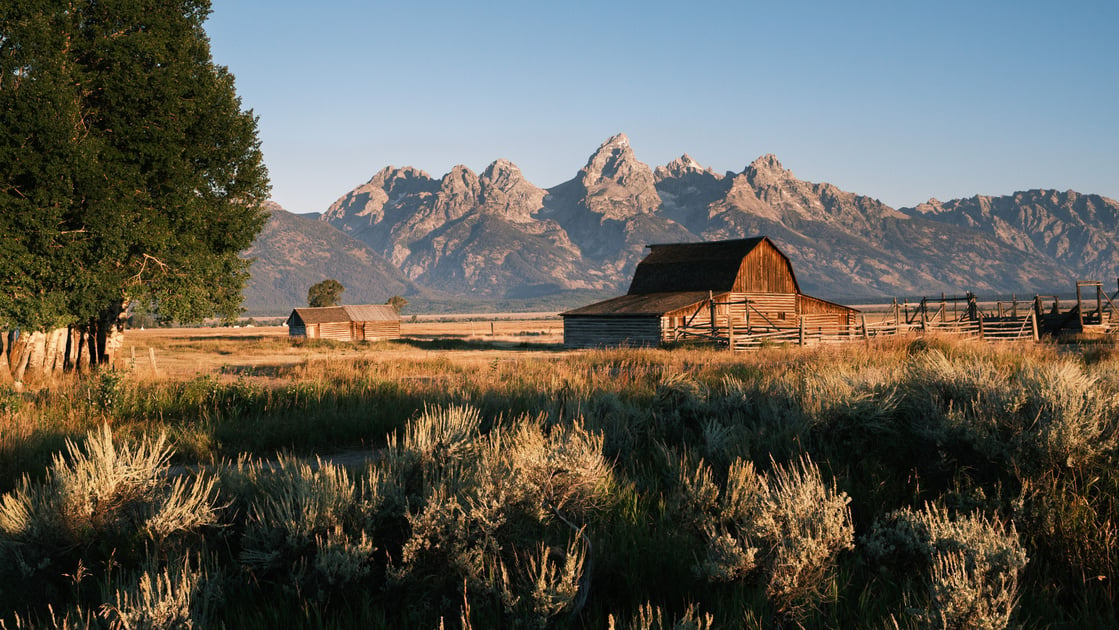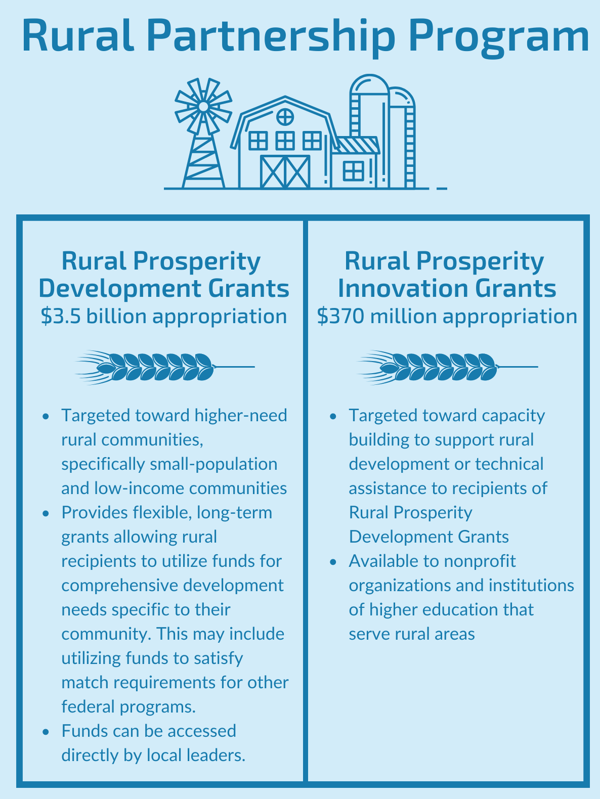The Build Back Better Act: Progressing Rural Prosperity
December 15, 2021 •Xavier La Rosa

With contributions by Christian Piccolo
After being passed by the U.S. House of Representatives on November 19, and with an upcoming Senate vote likely to occur before Christmas, the Build Back Better Act (H.R. 5376) (BBB) will be the next step for the Biden administration’s domestic policy agenda. In March, President Biden signed the American Rescue Plan Act (H.R. 1319) into law, appropriating funds focused on COVID-19 relief. This was followed by his November signing of the Infrastructure Investment and Jobs Act (H.R. 3684), which provides funding for infrastructure projects (such as roads, bridges, railroads, and broadband networks). When enacted, the BBB will become the Biden administration’s third major domestic policy achievement, investing $1.75 trillion to develop the nation’s social policy and battle the climate crisis.
The BBB’s primary goal is to rebuild the middle class and “ensure every community has a fair shot at participating in the nation’s economic growth”, with notable attention given to rural communities. To do so, the bill contains large, comprehensive investments that lower costs burdening the most at-risk Americans (such as expanding affordable housing, healthcare, and childcare benefits), providing them some economic stability. The bill also emphasizes the need to get people back to work, proposing large investments into clean energy production, water infrastructure, coastal restoration, forest management, and soil conservation that would create well-paying jobs while tackling the current climate crisis. Lastly, the bill aims to prepare the future workforce, which builds on lowering living costs and creating jobs by providing parents access to high-quality pre-K programs (specifically in rural areas) and increasing Pell Grant funds to eligible students.
With a strong emphasis on supporting rural communities, the bill proposes a transformative investment into the economic future of rural and tribal areas through the creation of the Rural Partnership Program (RPP), which will be administered by the U.S. Department of Agriculture’s Rural Development (USDA RD). Analysis of current federal policy highlights a fragmented and complex framework to achieve various Rural Development objectives (such as agriculture, healthcare, housing, and tribal assistance). This framework spans numerous departments, independent agencies, offices, and subagencies that administer their own programs from various legislation. As a result, without cohesive requirements throughout these federal programs, rural communities face several challenges obtaining access to affordable development funds when program formulas and requirements favor more populated areas. In addition, many of the programs that benefit rural communities are in the form of loans rather than federal grants, which place further financial strain on these communities to service debt obligations and forgo other investment opportunities.
The RPP targets these historically disadvantaged rural communities through two components, with each proposed appropriation and its main points outlined below.

The RPP is a historic opportunity to provide rural communities, often excluded from federal funding initiatives, with an equitable share of federal funds that allows them to participate in the nation’s economic growth. It also offers USDA RD a new opportunity to execute its mission of improving economic opportunities and the quality of life in rural America. The grant programs add to USDA RD’s existing portfolio of rural funding opportunities, leveraging the agency’s experience and expertise to promote additional rural development investment as part of the recovery, infrastructure, and social development initiatives that form the backbone of President Biden’s domestic agenda.
Get Updates
Featured Articles
Categories
- affordable housing (12)
- agile (3)
- AI (4)
- budget (3)
- change management (1)
- climate resilience (5)
- cloud computing (2)
- company announcements (15)
- consumer protection (3)
- COVID-19 (7)
- CredInsight (1)
- data analytics (82)
- data science (1)
- executive branch (4)
- fair lending (13)
- federal credit (36)
- federal finance (7)
- federal loans (7)
- federal register (2)
- financial institutions (1)
- Form 5500 (5)
- grants (1)
- healthcare (17)
- impact investing (12)
- infrastructure (13)
- LIBOR (4)
- litigation (8)
- machine learning (2)
- mechanical turk (3)
- mission-oriented finance (7)
- modeling (9)
- mortgage finance (10)
- office culture (26)
- opioid crisis (5)
- Opportunity Finance Network (4)
- opportunity zones (12)
- partnership (15)
- pay equity (5)
- predictive analytics (15)
- press coverage (3)
- program and business modernization (7)
- program evaluation (29)
- racial and social justice (8)
- real estate (2)
- risk management (10)
- rural communities (9)
- series - loan monitoring and AI (4)
- series - transforming federal lending (3)
- strength in numbers series (9)
- summer interns (7)
- taxes (7)
- thought leadership (4)
- white paper (15)


